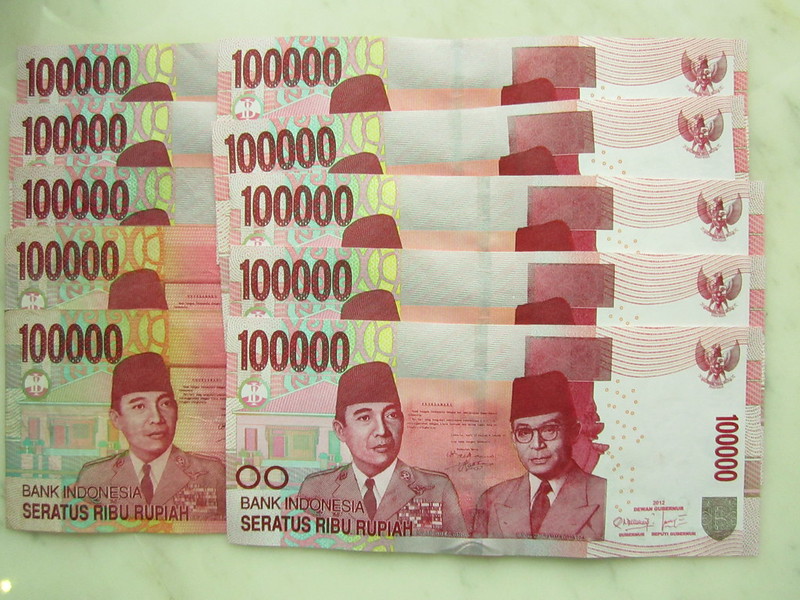Kapanlagi.com - Have you ever heard the word riba? Especially for Muslims, they must be familiar when hearing the word riba. Actually, riba is not only present in Islamic teachings, but other religions such as Christianity also have discussions related to riba. Riba has become a serious problem since the time of Greece and Rome. At that time, riba fluctuated according to the desires of the rulers.
Riba is an excess without the required compensation in buying and selling. Generally, riba is an increase in value or interest that exceeds the loan amount when returned with a certain amount taken from the principal loan amount to be paid by the borrower. If the borrower is unable to repay the riba at the specified time, the lender will add the cost again until the payment can be settled.
In everyday life, there is still a lot of confusion in determining which boundaries are included in riba. With a confused condition, without asking or consulting those who understand, unfortunately, often people justify usury practices. So that such things do not happen, you must understand the meaning, law, and types of usury in order to avoid being trapped in this major sin. Here are the types of usury that you must know:
1. Qardh Interest

(credit: flicker)
The first type of interest is qardh interest which falls under debt interest. The debt referred to here includes a profit motive (syarth naf'an) that goes back to the lender (muqarid) alone or to both the lender and the borrower (muqtarid). For example, someone lends Rp 100,000 and requires taking profit upon repayment. This profit can be in the form of goods or services.
This is considered interest and it is forbidden, because borrowing is done in the spirit of mutual assistance and kindness. As stated by Sheikh Abdurrahman bin Nashir As Sa'di, if the form of debt that includes profit is the same as exchanging dirhams for dirhams or rupiah for rupiah and then the profit is delayed.
2. Riba Fadhli
Riba fadhl is the exchange of similar goods with different amounts or measurements, and the necessary goods are included in the category of ribawi goods. For example, exchanging 10 kg of rice with 12 kg of rice is an example of riba fadhl. However, if the exchanged goods are of different types, then it is allowed, for example, exchanging 10 kg of sticky rice with 12 kg of regular rice.
In addition, riba does not occur in the barter system except with ribawi goods. In a hadith, there are only six items that are considered ribawi goods, but there is a dispute whether riba only applies to these six items or can be extended to other items.
3. Riba Yad

(credit: flicker)
Riba yad is a type of riba that involves exchanging goods by delaying the receipt of one or both of the exchanged goods without specifying the time. Riba yad occurs when the transaction does not specify the exact amount of the payment.
For example, suppose there is a car seller who offers their car for Rp 90,000,000 if paid in cash, but if paid in installments, the total becomes Rp 95,000,000. Then, the seller and the buyer do not specify the amount that needs to be paid until the end of the transaction.
4. Riba Nasi'ah
The last type of usury is Nasi'ah usury, which means additional compensation taken or received from the debtor as a compensation for the delay of payment. Hanafi scholars classified Nasi'ah usury as a form of barter that has no excess, but the delivery of the reward or price is deferred. This usury is forbidden based on the Quran and hadith.
Nasi'ah usury is known as jahiliyah usury because it originates from the practice of the ignorant people who lend money to someone and when the due date arrives, they offer to extend it, thus making this usury multiply. Nasi'ah usury is usually found in practices carried out by financial institutions or banks, with a money lending system that is repaid with monthly or yearly interest of around 7-5%. Such practices are clearly called usury in the form of Nasi'ah and are forbidden.
Usury is a forbidden transaction and is considered a major sin. The perpetrators of usury are cursed by Allah and are deprived of His mercy. Usury is injustice or oppression in reality, even though the one who is oppressed may feel helped, taking additional compensation is still considered oppressive. Interest is indeed voluntary, if it is not voluntary then it is not interest but rather confiscation. Whatever its type, it is definitely forbidden and must be avoided.
In addition, interest faces the threat of war from Allah and His Messenger. Only interest receives threats from Allah and His Messenger as stated in the hadith Arba'in which says "Whoever opposes my ally, then I declare war on him..."
(kpl/dtm)
Disclaimer: This translation from Bahasa Indonesia to English has been generated by Artificial Intelligence.














